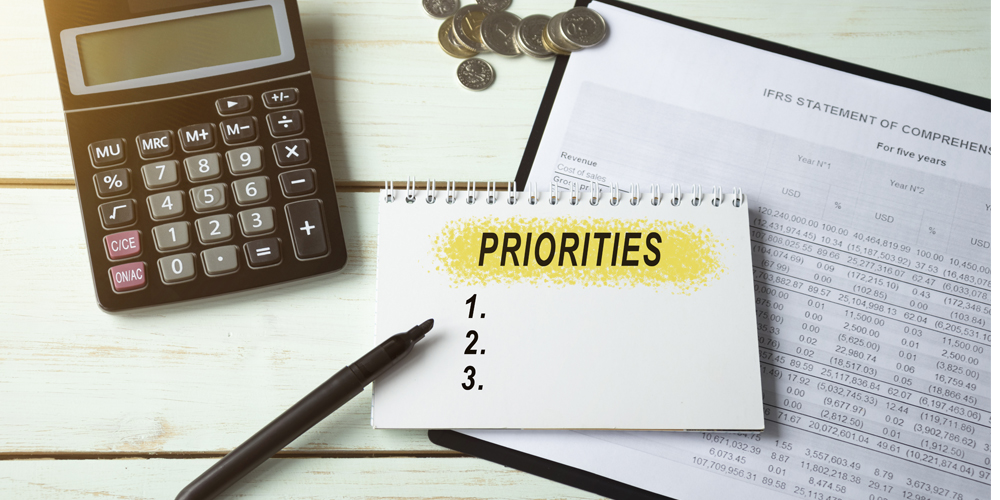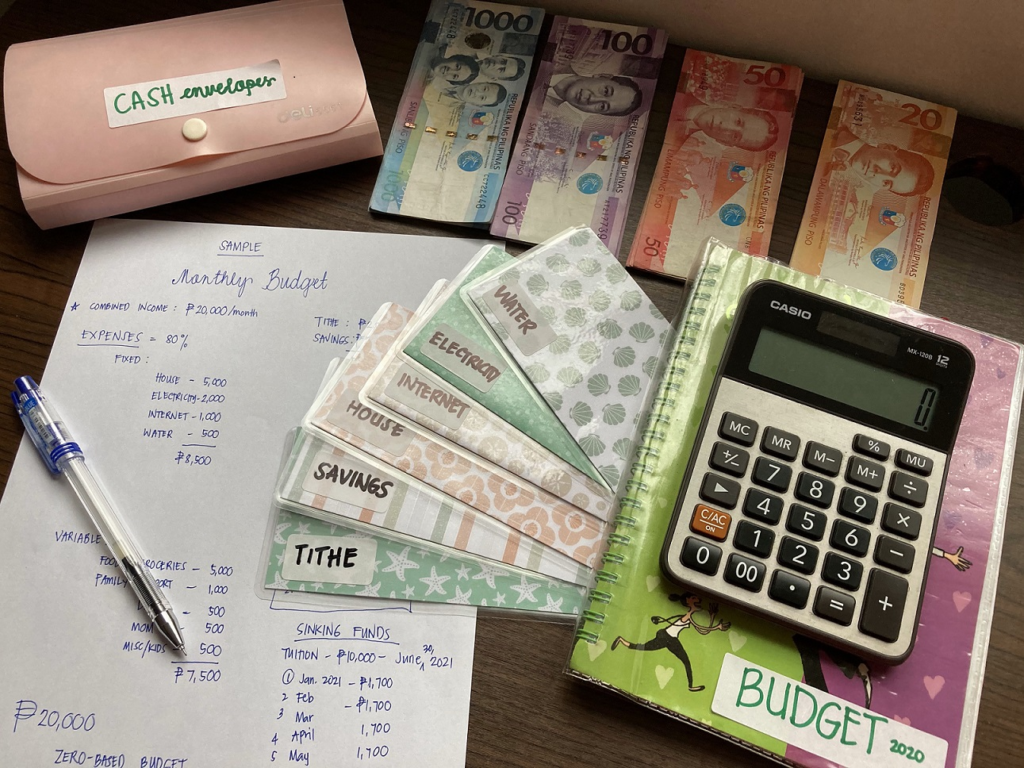Harnessing The Benefits Of Budgeting
Lies in its ability to empower individuals with financial control, prudent spending habits, goal prioritization, reduced stress, and long-term financial security.
Harnessing the benefits of budgeting is essential to financial success.
Few people understand the power of working with a budget.
The power of working with a budget is often underestimated, yet it stands as a fundamental pillar of financial stability and success. A budget is a roadmap for managing one’s finances, offering a comprehensive view of income, expenses, and savings. This tool enables individuals to make informed decisions, prioritize goals, and ultimately gain control over their financial well-being.
At its core, a budget is a reflection of financial reality. It forces individuals to confront their money’s actual inflow and outflow, providing a clear picture of their financial health. With this awareness, people can identify unnecessary expenditures, reduce waste, and redirect funds toward more meaningful endeavors. A budget acts as a reality check, preventing the illusion of financial security when overspending might be the norm.
Budgeting also empowers individuals to allocate resources intentionally. By categorizing expenses and setting limits, individuals can allocate funds to essentials such as housing, food, and utilities, while also carving out space for discretionary spending and savings. This deliberate allocation fosters discipline and accountability, preventing impulsive purchases that can derail financial goals.
Furthermore, a budget facilitates goal-setting and long-term planning. Whether saving for a down payment on a house, funding education, or planning for retirement, a well-structured budget is the scaffolding for achieving these aspirations. Each financial goal can be broken down into actionable steps, with the budget guiding the way. As progress is tracked, the sense of accomplishment and motivation to stick to the plan grows stronger.
The power of a budget extends beyond personal finances; it can positively impact relationships and reduce stress. Couples collaborating on a budget develop stronger communication skills and shared financial objectives. Conflicts arising from financial disagreements can be minimized by openly discussing income, expenses, and savings goals. Additionally, a budget controls finances, reducing anxiety and uncertainty about future financial stability.
The power of working with a budget is profound and far-reaching. It offers a realistic view of one’s financial situation, cultivates disciplined spending habits, aids in goal achievement, and contributes to overall well-being. By embracing budgeting as a tool for empowerment, individuals can make informed choices, build financial security, and create a solid foundation for their future endeavors.
We spend so much time trying to maximize our time, so why not also maximize your money?
In a world where time is often considered our most valuable commodity, maximizing time has become popular. However, in our quest for efficiency and productivity, we often overlook a parallel opportunity: maximizing our money. Just as we strive to make the most of our limited hours, we should also endeavor to optimize our financial resources for a secure and fulfilling life.
Maximizing money goes beyond the simple act of earning it. It involves making conscious and informed decisions about allocating, investing, and spending our financial resources. Just as we prioritize tasks and activities based on their importance, we should prioritize financial decisions that align with our goals and values. This deliberate approach can lead to a more balanced and meaningful life.
One of the critical aspects of maximizing money is learning how to save money and prepare your spending journal. Individuals can gain control over their spending habits by creating and adhering to a budget. This prevents wasteful expenditures and provides a clear roadmap for financial goals. A budget encourages disciplined spending and helps allocate funds to essential needs while making room for saving and investing in the future.
Investing wisely is another crucial component of financial maximization. Just as we invest time learning new skills or building relationships, we should invest our money to generate returns. Moreover, maximizing money allows us to seize opportunities that align with our aspirations. Whether starting a business, pursuing higher education, or traveling the world, financial stability provides the freedom to pursue these endeavors without being constrained by monetary limitations. It opens doors to experiences that enrich our lives and contribute to personal growth.
Additionally, we should always remember how Frugal living as a single mom involves careful budgeting, prioritizing needs over wants, and finding ways to save on expenses. With this kind of mindset single moms can live frugally.
Harnessing The Benefits Of Budgeting
A budget is a comprehensive financial plan that outlines how you intend to manage your money. It involves detailing your sources of income, categorizing expenses, and allocating funds for various purposes. Just as a roadmap guides your journey, a budget guides your financial decisions, helping you stay on track and achieve your financial goals.
Without a plan, we have no direction. Imagine embarking on a journey without a map or a GPS. You’ll likely get lost or waste time on detours without a plan. Similarly, you need a clear path to follow with a well-structured plan. This can result in aimless actions, missed opportunities, and a lack of focus on your goals.
Without a budget, our money has no direction. Money, like any resource, needs guidance to be used effectively. Without a budget, your finances lack a purposeful allocation. Expenses may become haphazard, and savings might suffer. A budget provides the needed direction to ensure your money is used wisely, with funds allocated to necessities, goals, and savings.
Helps Living Day To Day
A daily plan, designed for consistency and efficiency, is a structured outline of tasks and activities you follow daily without needing constant adjustments. It anticipates recurring responsibilities, allocates time for essential activities like work, self-care, and leisure, and minimizes the need for frequent reworking. This plan provides a clear framework that streamlines your day, allowing you to focus on tasks without the stress of constant planning and decision-making. It ensures that your time is optimized and that you make the most of each day while maintaining a sense of routine and balance.
Being a constant is important because it helps us maintain stability, reliability, and self-assurance. We build trust within ourselves when we remain consistent in our actions, values, and commitments. This consistency allows us to progress toward our goals, build healthy habits, and foster stronger relationships with others. Being a constant presence in our lives, we can better navigate challenges, adapt to change, and cultivate a sense of self-worth and resilience.
In budgeting, your outcome might be to save a certain amount of money each month. While unexpected expenses or income changes might arise, the core outcome of saving remains constant. Regardless of these changes, the ultimate goal of financial stability remains unchanged.
Goals will change but consider if that’s what you want:
Your budgeting goals evolve. Initially, you might aim to save for a vacation, but later realize you want to prioritize building an emergency fund. It’s important to periodically assess whether these changes align with your financial aspirations and values. Are you changing your goals because they genuinely reflect your evolving needs, or are you getting swayed by external factors?
Example: Let’s say you initially set a goal to allocate $200 per month for entertainment expenses (movies, dining out, etc.). However, after a few months, you find that you’re using only some of that budget and are more focused on saving for a home renovation project. You should consider whether this change in goal aligns with your true financial priorities.
In budgeting, like in other areas of life, it’s essential to stay adaptable to changing circumstances while ensuring that your goals and outcomes remain aligned with your values and desires.
Keeps Spending In Check With Short- And Long-Range Goals
A budget is a financial roadmap that aligns your spending with your values and goals. By creating and adhering to a budget, you consciously allocate your money towards things that truly matter to you, whether saving for a specific purpose, investing in personal growth, or maintaining a certain lifestyle. This process ensures that your financial decisions are intentional and reflect your priorities. By tracking your income and expenses, you can identify areas where you might be overspending or underspending, helping you make adjustments to stay on course. A budget empowers you to make informed choices, maintain control over your finances, and pursue a life that’s in harmony with your values.
The idea that “you only have so much money, so pursue what is most important to you” emphasizes allocating your financial resources wisely to achieve your priorities. Money is a finite resource, and your choices about spending, saving, and investing directly impact your ability to pursue your goals.
By recognizing that you can’t fund every desire, you’re prompted to prioritize what truly matters. This involves identifying your core values and long-term aspirations. Once you’ve defined these priorities, you can allocate your money accordingly. This might mean cutting back on less essential expenses to free up funds for things that align with your values, such as education, experiences, or personal growth.
Ultimately, this mindset encourages you to make intentional financial decisions. Instead of letting impulse or external influences drive your spending, you become more conscious of how each financial choice brings you closer to your goals or takes you further away.
Directs Your Money
By pursuing what’s important to you
It’s about controlling your financial decisions and consciously channeling your money to align with your values and priorities.
When you clearly understand what matters most to you, whether it’s saving for a home, traveling, advancing your education, or supporting a cause, you can intentionally direct your money toward those goals. This involves making deliberate choices about where your funds go and being mindful of how each expense contributes to your objectives.
Doing so prevents you from wasting your money on impulsive or inconsequential spending. Instead, you ensure that your financial decisions have purpose and meaning, which can lead to a greater sense of fulfillment and satisfaction.
You will decide not to participate in some things so you will have the money for the most important things
Making intentional choices about spending your money allows you to prioritize what truly matters to you.
In practice, this means recognizing that you can’t afford to say “yes” to every opportunity, purchase, or experience that comes your way. Instead, you’re making a conscious decision to forgo certain expenses or activities that might be less aligned with your core values or long-term goals. This enables you to free up financial resources to allocate toward the things that hold greater significance for you.
Indeed, Harnessing the Benefits of Budgeting allows individuals to establish a clear financial roadmap. By creating a budget, you’re charting a course for your financial journey, setting priorities, and allocating resources wisely. It keeps you from overspending.
While having a primary dream or goal is important, it’s also essential to recognize that you have various interests, aspirations, and dimensions. Pursuing only one dream might limit your experiences and growth potential. Acknowledging the need to explore multiple avenues opens you to a broader range of opportunities and fulfillment.
Whether renting an apartment or paying a mortgage on your home, this expense is essential because having a safe and comfortable place to live is a basic need.
There are also additional financial obligations beyond your housing costs. This includes utilities like electricity, water, and internet, insurance payments, groceries, transportation expenses, and any other regular bills you need to pay to maintain your daily life.
Managing your finances involves balancing fulfilling your essential needs and indulging in your desires or wants. While it’s natural to want certain things that please you, it’s important to prioritize your needs before allocating funds to wants.
You prioritize your essential needs, such as housing, utilities, and food, over discretionary spending on things not critical to your survival or well-being. By taking care of your needs before addressing your wants, you ensure that you meet your basic requirements and maintain financial stability.
These points underline that financial responsibility involves making conscious choices about allocating your resources. Recognizing and fulfilling your financial commitments first creates a solid foundation for your financial health. This foundation then allows you to consider how to wisely allocate any remaining funds for things that bring you joy or enhance your lifestyle.
Can Ease Saving For Retirement
A good budget can create ripple effects such as Reduced Stress, Savings, Debt Management, Investments, Improved Spending Habits, Financial Goals, and more.
In essence, the positive effects of a reasonable budget extend beyond just managing money; they impact various aspects of your life and contribute to your overall financial health.
Having a reasonable budget makes saving for retirement easier by allowing you to allocate a portion of your income toward retirement savings. With a clear understanding of your expenses and financial goals, you can prioritize contributions to retirement accounts. This ensures you consistently set aside money for your future, take advantage of compounding interest over time, and build a substantial retirement nest egg. A well-structured budget empowers you to make informed decisions about how much to save, invest, and spend, ultimately supporting your long-term financial security during retirement.
A well-crafted budget not only aids in saving for retirement but also helps you achieve various other short and long-term financial goals. By tracking your income and expenses, you can allocate funds for specific objectives such as buying a home, paying for education, starting a business, going on vacations, or paying off debts. This budgeting approach lets you break down larger goals into manageable, achievable steps. As you consistently contribute towards these goals within your budget, you’re more likely to attain them and experience a sense of accomplishment. A comprehensive budget is a roadmap that guides your financial decisions and propels you toward fulfilling immediate and future aspirations.
Helps Prepare For Emergencies
Indeed, we can’t predict the exact nature or timing of emergencies, but we can certainly prepare ourselves financially. One effective way is to establish an emergency fund, a dedicated amount of money for unexpected situations. This fund should be used only for emergencies like medical crises, job loss, or urgent home repairs. Defining a “real emergency” varies from person to person and situation to situation, and it’s important to exercise discretion. For instance, when you were younger, you considered events that impacted your work or required hospitalization as emergencies. This demonstrates that your understanding of emergencies evolves with your experiences and responsibilities. The key is to ensure that your emergency fund remains accessible when needed and helps you navigate unforeseen challenges with financial stability.
What Is An Emergency To You?
Your financial priorities and perceptions of emergencies will likely shift as you progress through different life stages. For example, the arrival of a new baby can introduce a range of unforeseen expenses, such as medical costs, childcare, and adjustments to your living situation. This can reshape your definition of an emergency, expanding it to encompass the unexpected costs of raising a child. Similarly, when someone in the family goes to college, you may find that your understanding of emergencies expands to include education-related expenses, like unexpected tuition hikes or additional educational needs.
In light of these evolving scenarios, it’s essential to maintain a flexible approach to your financial planning. While having a dedicated emergency fund remains crucial, it’s equally important to set aside money for specific life events, like buying a home, funding education, or saving for retirement. By proactively saving for these milestones and having a general financial cushion, you create a safety net that handles immediate crises and provides a buffer for various life changes. This comprehensive strategy ensures you’re prepared for the unexpected while working towards your long-term financial goals.
It is harnessing the benefits of budgeting. This extends beyond immediate financial control; it lays the foundation for future security.
Conclusion
Harnessing the benefits of budgeting safeguards your financial stability and empowers you to seize unexpected opportunities.
Concentrating on the benefits of budgeting can have a profound positive impact on your financial well-being. Focusing on these advantages makes you more likely to stay motivated and committed to maintaining a budget. Budgeting empowers you to take control of your finances, reduce financial stress, and work toward your goals with a clear plan. It helps you track your spending, identify areas for potential savings, and allocate resources wisely. Moreover, budgeting encourages you to prioritize your financial objectives, whether it’s building an emergency fund, paying off debt, or saving for significant life events. You’re setting yourself up for a more secure and prosperous financial future by consistently concentrating on these benefits.
B. A budget gives you guidance for your daily life
A budget provides essential guidance for your daily life by offering a structured framework for your financial decisions. It helps you make informed choices about spending money, ensuring that your expenses align with your priorities and goals. With a budget in place, you can navigate daily spending more consciously, distinguishing between needs and wants. This guidance prevents overspending and encourages mindful consumption, leading to a more balanced and financially responsible lifestyle. By adhering to your budget, you’re effectively steering your financial choices in a direction that supports your long-term objectives and overall financial well-being.
C. Helps keep things in proportion
A budget helps keep things in proportion by establishing clear boundaries for your spending and saving. It ensures that you allocate your income according to your priorities and goals, preventing any single expense category from dominating your financial resources. This balance helps you avoid overspending in one area at the expense of neglecting others. By setting limits and proportions within your budget, you can maintain harmony among various aspects of your financial life, whether saving for emergencies, investing for the future, or enjoying discretionary spending. This proportional approach ensures you’re making well-rounded financial decisions aligning with your overall financial strategy.



